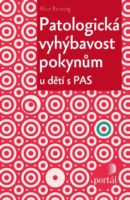Blanka Plasová
Medailon autorů:
Mgr. Blanka Plasová is part-time researcher in the Institute for Research on Social Reproduction and Integration at the Faculty of Social Studies of Masaryk University Brno, the Czech Republic. Her main research interests are focused on the issue of reconciling work and family life. Further, she analyzes childcare policy (evolution, evaluation of quality and availability of childcare facilities) in the Czech Republic as well as in other central-European countries. Until now she published mainly in Czech journals and also numerous articles in Czech anthologies about women’s participation in the labour market, work-family imbalance as a new social risk and family-friendly policies on the level of employers. In recent years, she has also worked as a lecturer at Masaryk University focusing on the family policy, equal opportunities for men and women in the labour market and social programs within organizations.
Anotace:
The main goal of this article is to clarify and characterize the principles, goals and functions of the childcare service system for children aged 0-6 in the Czech Republic in the context of the requirements and expectations of contemporary European childcare policy. Currently, the system of childcare is one of the fastest growing areas in the EU; however, this development is not occuring at the same pace or in the same way in all European countries (Sector Futures-Childcare Services Sector 2006). We can find two basic ideal principles on which European countries usually build child-care systems (Scheiwe, Willekens 2008). The first idea concerns the need of children below the age of obligatory schooling to be already publicly educated. The second idea promotes the reconciliation of care work and paid work, therefore it concentrates more on the needs of parents. We can say that in the Czech system of childcare there are both basic principles: the educational model and the reconciliation model. However, at the first glance there is an obvious difference between the concept of care for children from 0 to 3 years and that of children over 3 years of age; there is a strictly maintained division between the two in the Czech Republic. The provision of public care for children under 3 years (nursery schools) has practically disappeared. There is much pressure exerted on parents to take care of their children under 3 years within the family. This somewhat undermines the respect for differentiation among various family patterns, choices and strategies. On the other hand, the system of kindergartens for children of 3 to 6 years is a part of a social policy in the Czech Republic that is fully supported, and not just financially. Besides the mentioned main goal, this article provides also information about tools and measures which are available for social workers and about the conditions and also limits of the childcare system which represents (state) enviromental support for coping conflicting pressures between paid work and childcare.
Klíčová slova:
Politika péče o děti, rodinná politika, školka, mateřská škola, práce, sladění práce a rodiny, ranná výchova, Česká republika, Evropský kontext
s. 60–79






